第503章 VOLUME VII(32)
I am again pressed with the claim of Mr. Marshall O. Roberts, for transportation of what was called the Naval Brigade from New York to Fortress Monroe. This force was a special organization got up by one Bartlett, in pretended pursuance of written authority from me, but in fact, pursuing the authority in scarcely anything whatever. The credit given him by Mr. Roberts, was given in the teeth of the express declaration that the Government would not be responsible for the class of expenses to which it belonged. After all some part of the transportation became useful to the Government, and equitably should be paid for; but I have neither time nor means to ascertain this equitable amount, or any appropriation to pay it with if ascertained. If the Quartermaster at New York can ascertain what would compensate for so much of the transportation as did result usefully to the Government, it might be a step towards reaching justice. I write this from memory, but I believe it is substantially correct.
A. LINCOLN.
TO P. A. CONKLING AND OTHERS.
EXECUTIVE MANSION, WASHINGTON, June 3, 1864.
HON. F. A. CONKLING AND OTHERS.
GENTLEMEN:--Your letter, inviting me to be present at a mass meeting of loyal citizens, to be held at New York on the 4th instant, for the purpose of expressing gratitude to Lieutenant-General Grant for his signal services, was received yesterday. It is impossible for me to attend. I approve, nevertheless, of whatever may tend to strengthen and sustain General Grant and the noble armies now under his direction. My previous high estimate of General Grant has been maintained and heightened by what has occurred in the remarkable campaign he is now conducting, while the magnitude and difficulty of the task before him does not prove less than I expected. He and his brave soldiers are now in the midst of their great trial, and I trust that at your meeting you will so shape your good words that they may turn to men and guns, moving to his and their support.
Yours truly, A. LINCOLN.
INDORSEMENT ON A LETTER TOUCHING THE
REPUBLICAN NATIONAL CONVENTION.
JUNE 5, 1864.
(Indorsement.)
Swett is unquestionably all right. Mr. Holt is a good man, but I had not heard or thought of him for Vice-President. Wish not to interfere about Vice-President. Cannot interfere about platform.
Convention must judge for itself.
A. LINCOLN.
TELEGRAM TO GENERAL MEADE.
EXECUTIVE MANSION, WASHINGTON, June 6, 1864.
MAJOR-GENERAL MEADE, Army of the Potomac:
Private James McCarthy, of the One-hundred and fortieth New York Volunteers, is here under sentence to the Dry Tortugas for an attempt to desert. His friends appeal to me and if his colonel and you consent, I will send him to his regiment. Please answer.
A. LINCOLN.
TELEGRAM TO GENERAL W. S. ROSECRANS.
WASHINGTON, June 8, 1864.
MAJOR-GENERAL ROSECRANS, St. Louis, Missouri:
Yours of to-day received. I am unable to conceive how a message can be less safe by the express than by a staff-officer. If you send a verbal message, the messenger is one additional person let into the secret.
A. LINCOLN
REPLY TO THE COMMITTEE NOTIFYING PRESIDENT LINCOLN OF HIS
RENOMINATION, JUNE 9, 1864.
Mr. CHAIRMAN AND GENTLEMEN OF THE COMMITTEE:
I will neither conceal my gratification nor restrain the expression of my gratitude that the Union people, through their convention, in their continued effort to save and advance the nation, have deemed me not unworthy to remain in my present position. I know no reason to doubt that I shall accept the nomination tendered; and yet perhaps I should not declare definitely before reading and considering what is called the platform. I will say now, however, I approve the declaration in favor of so amending the Constitution as to prohibit slavery throughout the nation. When the people in revolt, with a hundred days of explicit notice that they could within those days resume their allegiance without the overthrow of their institution, and that they could not so resume it afterward, elected to stand out, such amendment of the Constitution as now proposed became a fitting and necessary conclusion to the final success of the Union cause.
Such alone can meet and cover all cavils. Now the unconditional Union men, North and South, perceive its importance and embrace it.
In the joint names of Liberty and Union, let us labor to give it legal form and practical effect.
PLATFORM OF THE UNION NATIONAL CONVENTION
HELD IN BALTIMORE, MD., JUNE 7 AND 8, 1864.
1. Resolved, That it is the highest duty of every American citizen to maintain against all their enemies the integrity of the Union and the paramount authority of the Constitution and laws of the United States; and that, laying aside all differences of political opinion, we pledge ourselves, as Union men, animated by a common sentiment and aiming at a common object, to do everything in our power to aid the Government in quelling by force of arms the rebellion now raging against its authority, and in bringing to the punishment due to their crimes the rebels and traitors arrayed against it.
2. Resolved, That we approve the determination of the Government of the United States not to compromise with rebels, or to offer them any terms of peace, except such as may be based upon an unconditional surrender of their hostility and a return to their just allegiance to the Constitution and laws of the United States, and that we call upon the Government to maintain this position, and to prosecute the war with the utmost possible vigor to the complete suppression of the rebellion, in full reliance upon the self-sacrificing patriotism, the heroic valor, and the undying devotion of the American people to their Country and its free institutions.